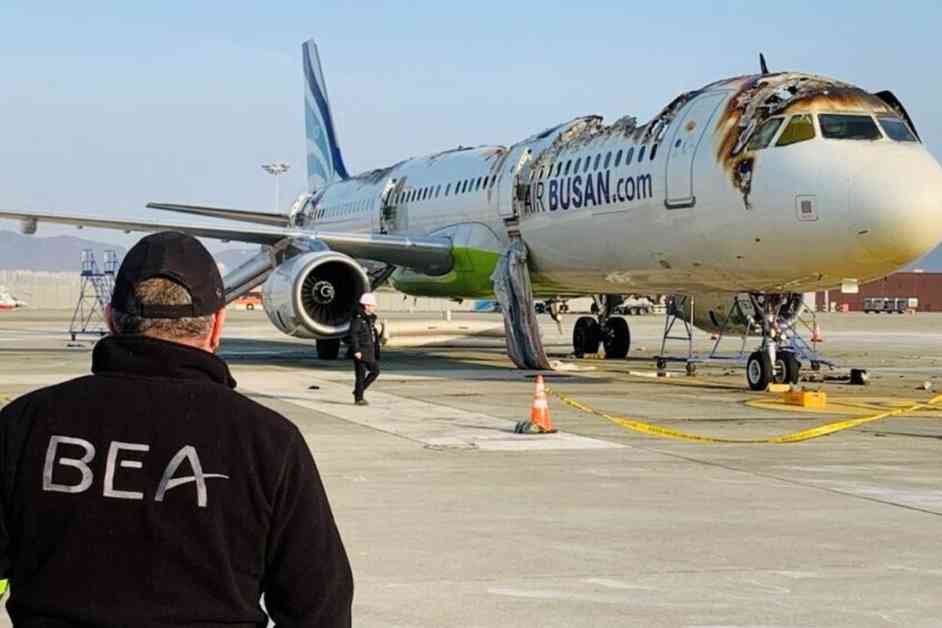A South Korean airline has stirred controversy with its recent decision to ban power banks from carry-on luggage in the wake of a fire incident that occurred onboard one of its flights. Air Busan, the airline in question, has implemented this new policy with the primary goal of prioritizing passenger safety. This groundbreaking move has left many travelers wondering about the implications of such a ban and its impact on their overall flying experience.
The Incident: Air Busan Flight 391
On January 28, 2025, chaos unfolded at Gimhae International Airport in Busan when Air Busan Flight 391, bound for Hong Kong, suddenly burst into flames just moments before takeoff. Despite the terrifying ordeal, all 176 passengers and crew on board were successfully evacuated, with only seven minor injuries reported. However, the incident has raised significant concerns about the potential dangers posed by power banks and other electronic devices during air travel.
Investigations are currently underway to determine the root cause of the fire, with initial suspicions pointing towards a power bank as the likely culprit. This incident serves as a stark reminder of the importance of adhering to strict safety regulations and guidelines implemented by airlines to mitigate risks associated with lithium-ion batteries and other potential hazards.
Air Busan’s Safety Measures
In response to the recent fire incident, Air Busan has taken a proactive stance by introducing a list of banned items aimed at safeguarding passengers and crew members. Among the prohibited items are explosives, weapons, flammable substances, toxic materials, and, notably, power banks. Passengers are now required to either keep their portable chargers on their person throughout the flight or store them in checked luggage under the seat, as overhead bins are off-limits for these devices.
While the ban on power banks may inconvenience some passengers, the airline’s decision underscores its commitment to prioritizing safety above all else. By enforcing strict regulations and guidelines, Air Busan aims to prevent future mishaps and ensure the well-being of everyone onboard its flights.
Additional Safety Concerns: Jeju Air Crash
The recent incident involving Air Busan is not the only aviation tragedy to have struck South Korea in recent months. Just one month prior, on December 29, 2024, Jeju Air experienced a catastrophic crash that resulted in the loss of all but two of the 181 individuals on board. The plane, en route from Bangkok to Muan International Airport, crashed while attempting an emergency belly landing, leading to a devastating loss of life.
In the aftermath of the crash, Jeju Air CEO Kim E-bae issued a heartfelt apology to the families of the victims and expressed deep regret over the tragic event. The CEO’s words serve as a poignant reminder of the human toll of aviation disasters and the profound impact they have on loved ones left behind.
Moving Forward: Prioritizing Safety in Aviation
As the aviation industry grapples with the aftermath of these tragic incidents, the need for enhanced safety measures and stringent regulations has never been more apparent. Airlines like Air Busan and Jeju Air must remain vigilant in their commitment to passenger safety and continuously reassess their protocols to address emerging threats and risks.
Ultimately, the safety and well-being of passengers and crew members should always take precedence in the realm of air travel. By learning from past mistakes, implementing robust safety measures, and fostering a culture of transparency and accountability, airlines can strive to prevent future tragedies and ensure a safer, more secure flying experience for all.













